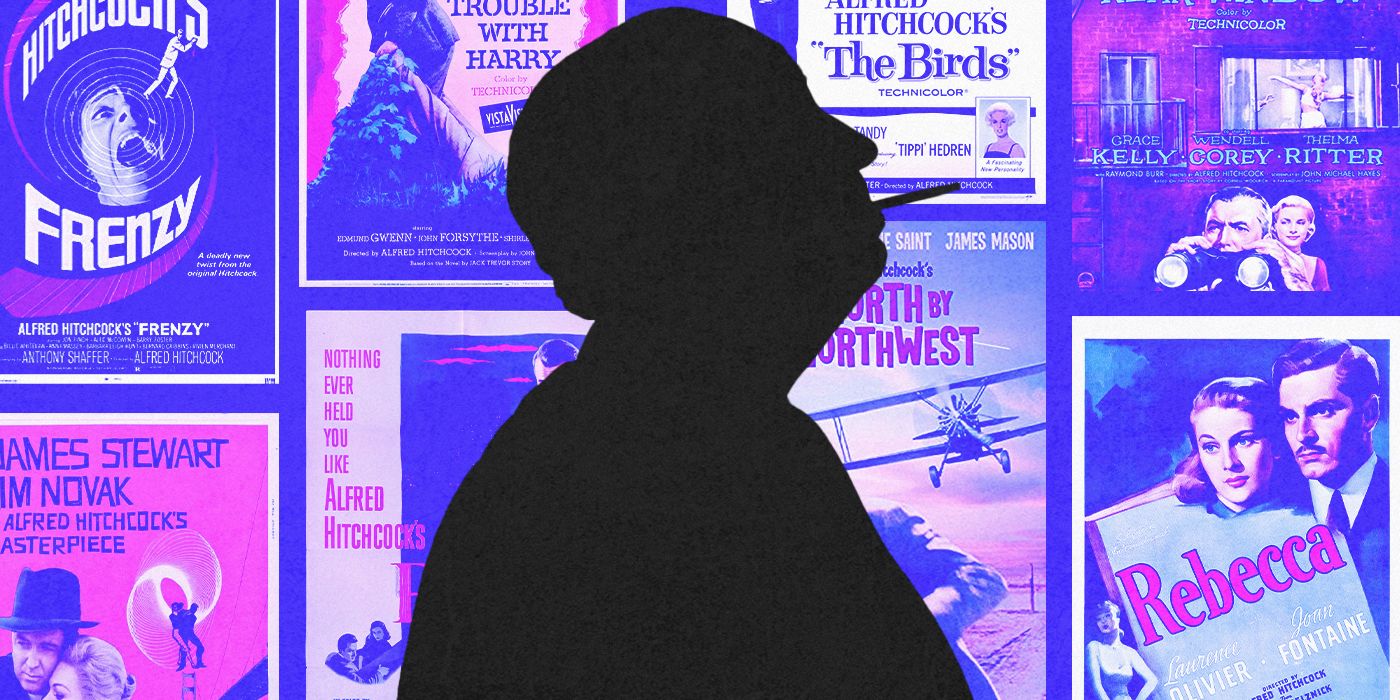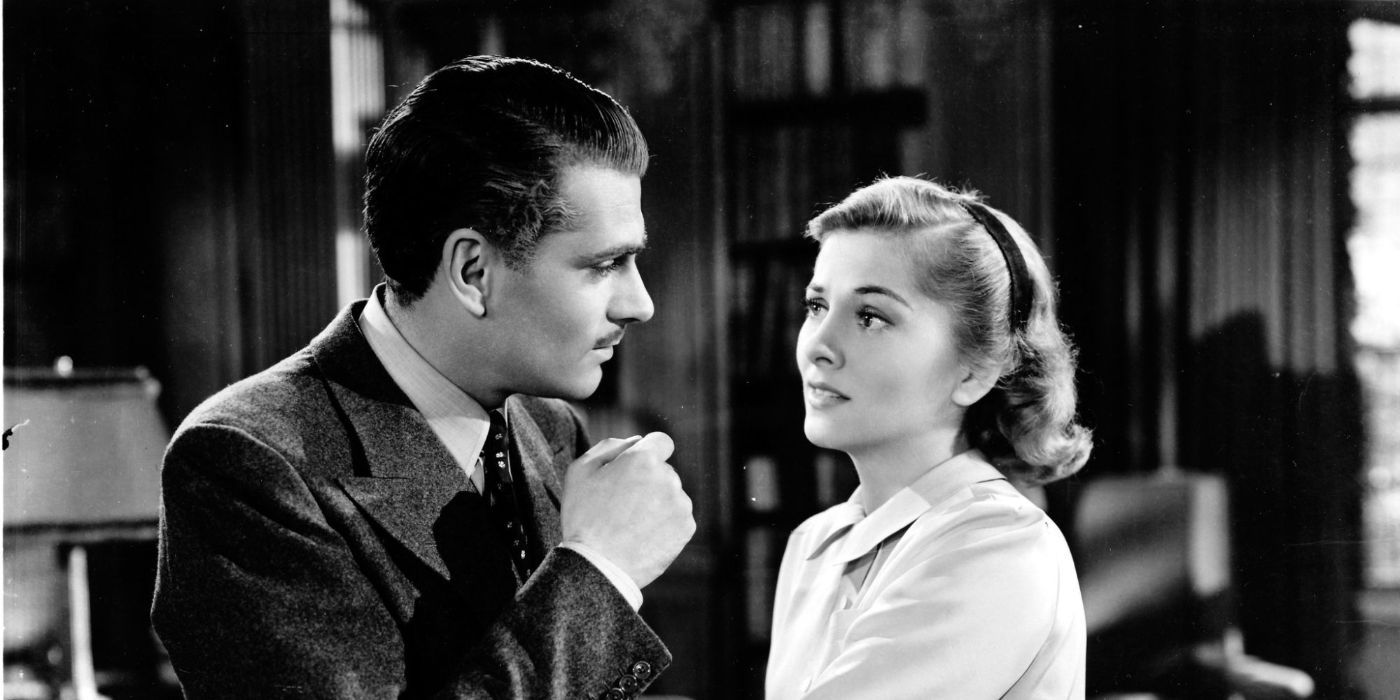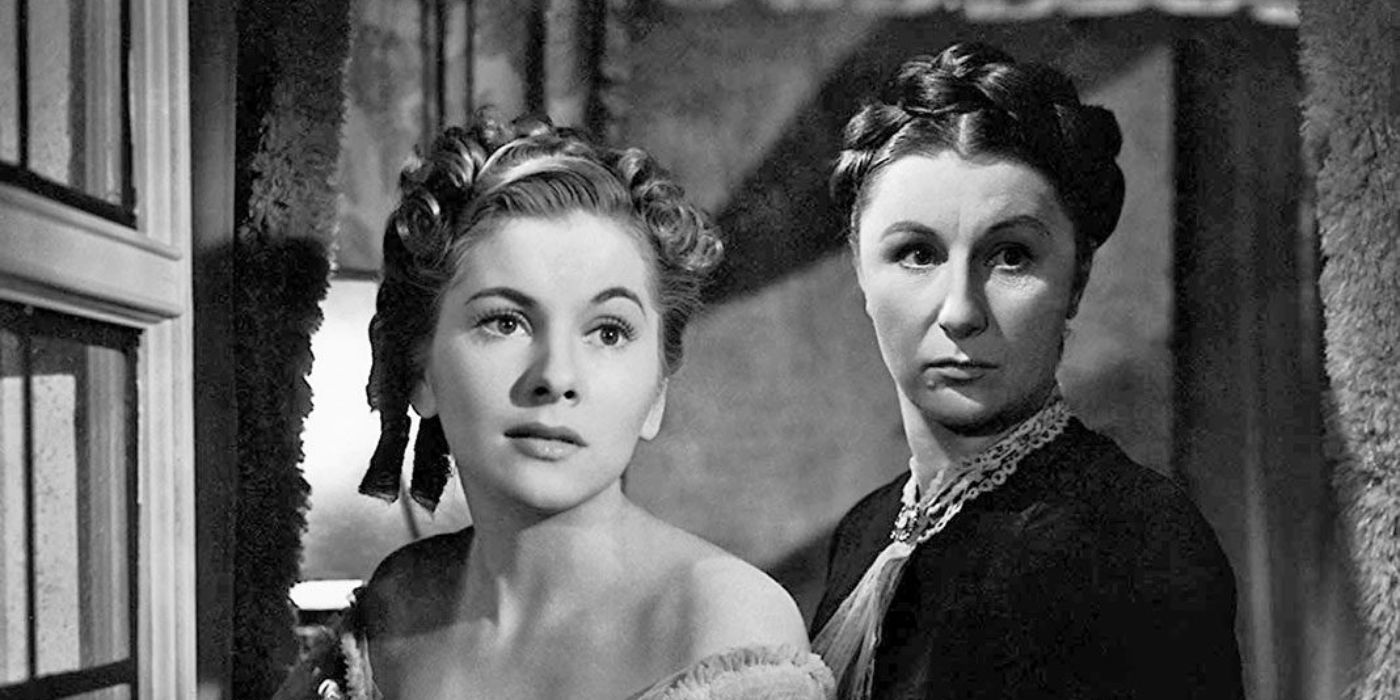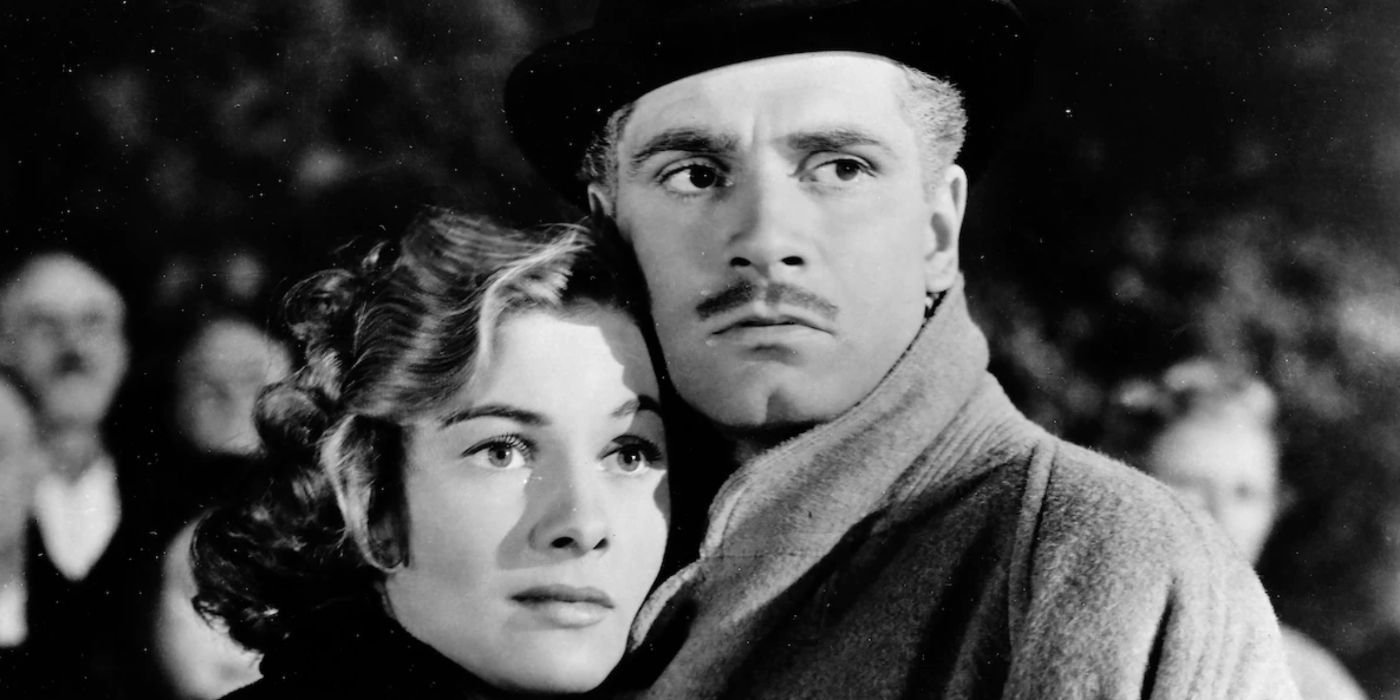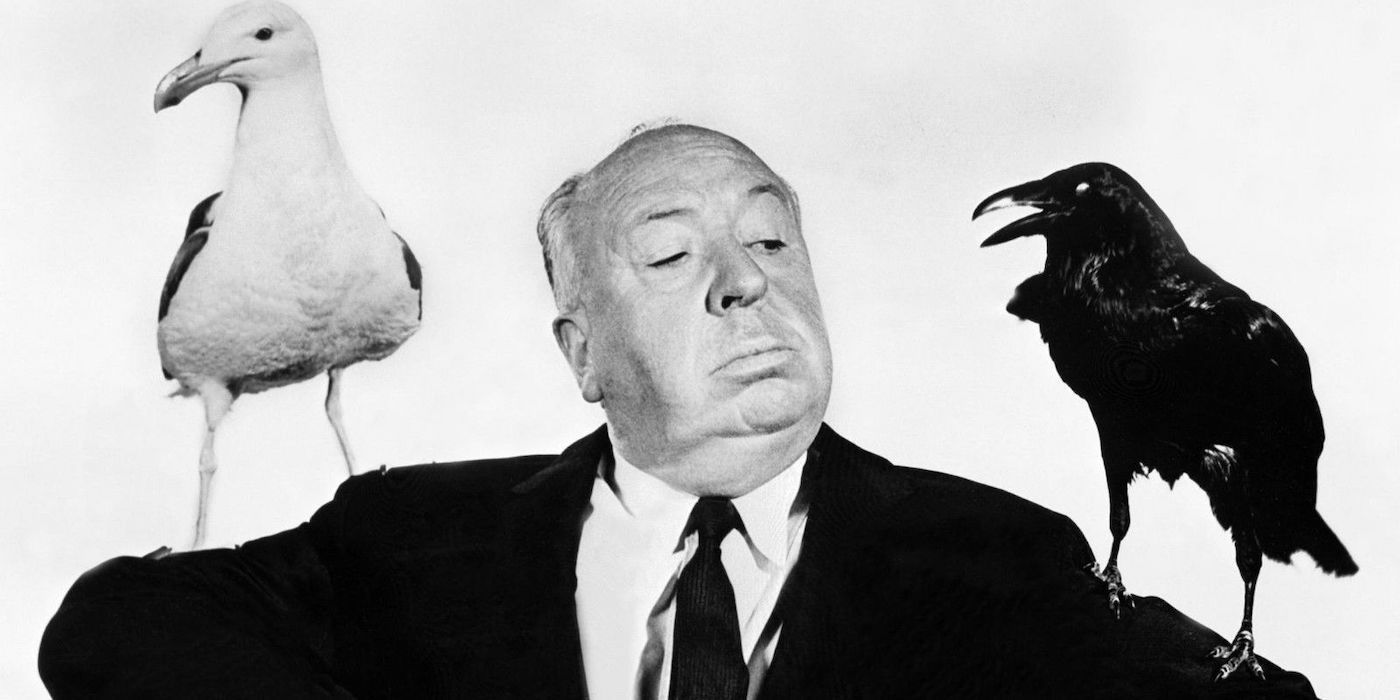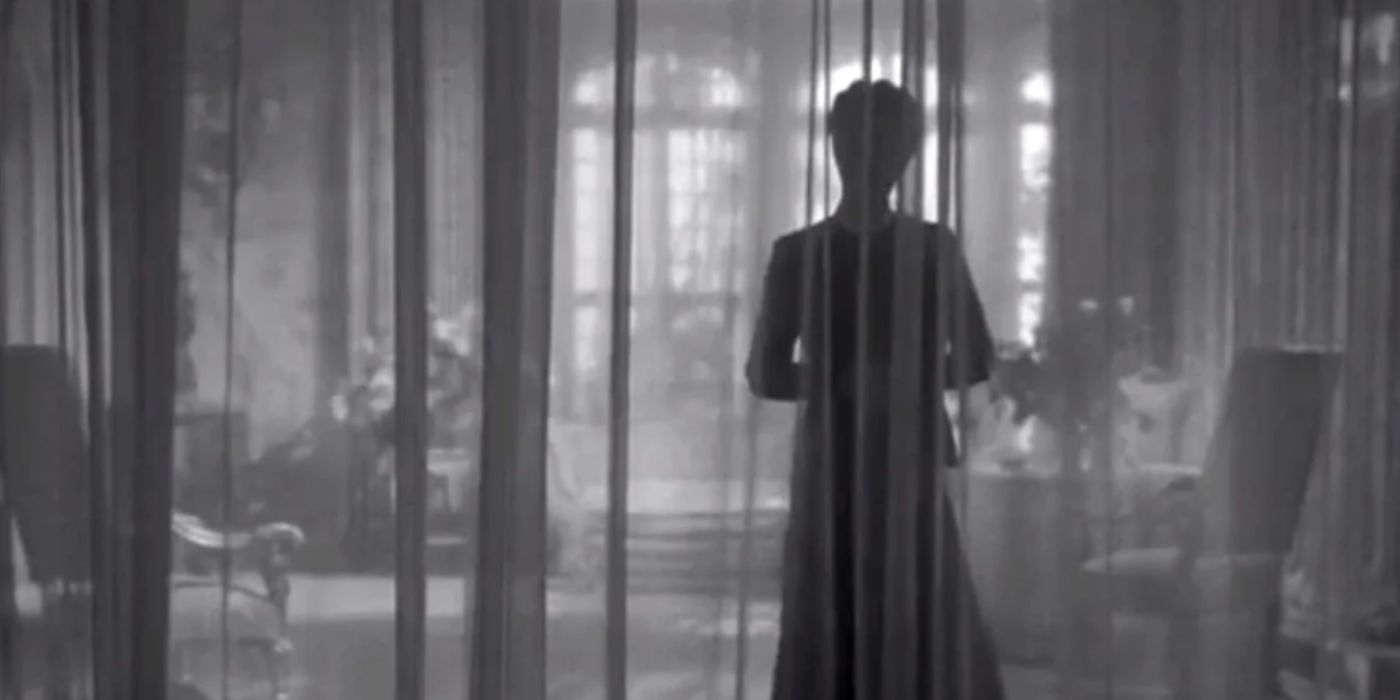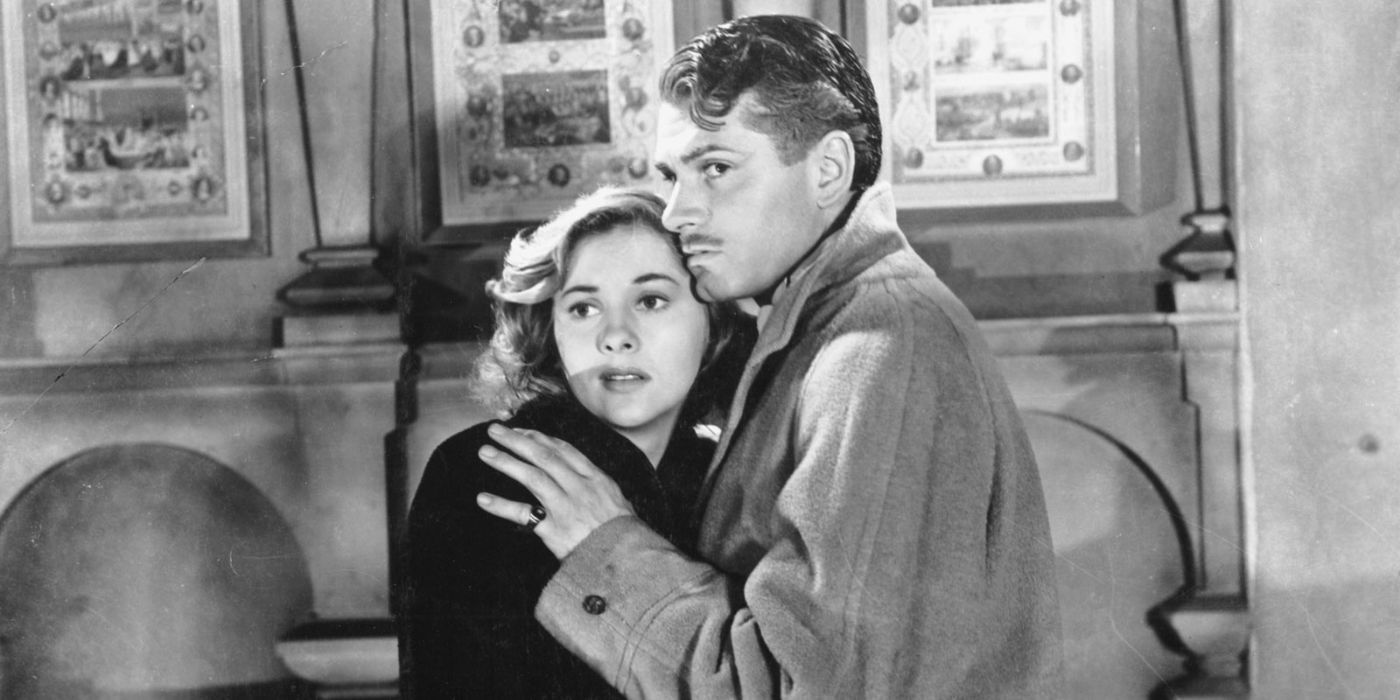The Master of Suspense, Alfred Hitchcock has made some of the greatest films of all time, but his first and only Best Picture winner might also be his best. While not Hitchcock's first feature film, this 1941 Academy Award winner was the first time Hitchcock was introduced to wider audiences, particularly in the United States, as this film was Hitchcock's first Hollywood production. With two Academy Award wins out of an astounding eleven nominations, Alfred Hitchcock really could not ask for a better Hollywood debut than Rebecca (not to be confused with the less stellar Netflix remake from 2020).
What is 'Rebecca' About?
Based on the 1938 novel by author Daphne du Maurier, Rebecca is a fascinating, gripping, and shocking mystery noir that is packed to the brim with some of the signature narrative and aesthetic hallmarks that Hitchcock would become so well-known for. Despite being called Rebecca, the mysterious titular character is not the film's main protagonist but still will be an essential aspect of this stunning story. Even more impressive is that Rebecca is dead when the movie named after her begins.
The true protagonist of Rebecca is a young woman who would later be known as Mrs. de Winter (Joan Fontaine), whose name is never revealed to the audience. While visiting the beautiful Monte Carlo, the young woman meets a wealthy widower named Maximilian "Maxim" de Winter (Laurence Olivier), with whom the future Mrs. de Winter is infatuated. While Maxim appears to be still mourning for his late wife, Rebecca de Winter, the connection between the two star-crossed lovers is so intense that they decide to marry after only knowing each other for a few weeks.
The new de Winter couple arrives at Maxim's illustrious estate called Manderlay shortly after marriage. The overseer of this estate is one Mrs. Danvers (Judith Anderson) - a cold and suspicious individual who instantly dislikes the new Mrs. de Winter. Evidently, Mrs. Danvers' love for Rebecca de Winter is even more intense than that of her master, Maxim, though the reason behind this is a mystery. Danvers makes it her mission to torture Mrs. de Winter to make her suicidal, proving herself as a master manipulator.
After days of torment from Mrs. Danvers and unexplainable fits of rage from Maxim, Mrs. de Winter is at her wit's end. Before jumping to her demise, Mrs. de Winter notices a boat near the beach, which contains the deceased body of Rebecca. Maxim is also there and regales what really happened to his "beloved" partner. As it turns out, the love that Maxim felt for Rebecca was not mutual. While the heir was infatuated with her, Rebecca was cruelly flaunting her promiscuity to taunt Maxim and even starts an incestuous relationship with her cousin, Jack Favell (George Sanders). According to Maxim, the tension between him and Rebecca reached a breaking point when Rebecca tells Maxim she is pregnant with Jack's child, leading to a physical scuffle where Rebecca accidentally hits her head and dies.
This presumably makes Maxim guilty of manslaughter at best and murder at worst, but does the new Mrs. de Winter care? No. Instead, she finds the confidence to help her beloved Maxim escape prosecution. That proves difficult since Jack Favell has damning evidence that reveals Maxim killed Rebecca, though this evidence becomes non-admissible after another shocking reveal. Rebecca was never pregnant but was actually diagnosed with cancer, and she goaded Maxim into killing her himself since she knew she didn't have much time left. As a result, Rebecca's death is officially ruled as a suicide, and Maxim is exonerated of any crimes related to her death.
Now, finally at peace with Rebecca's death and ready for a new life, Maxim is in for one more surprise when he and his wife see Manderlay has been set ablaze, started by a mad Mrs. Danvers who wants to be reunited with Rebecca.
Hitchcock Utilizes Method Directing in 'Rebecca'
It's well-known that Alfred Hitchcock utilized unique methods to extract raw performances from the actors he directed. Unfortunately, some of these methods were extreme even for the Golden Age of cinema and would certainly be cancelable offenses if attempted in today's industry. The most infamous case is that of the allegations made by The Birds star Tippi Hendren, who allegedly was locked in a room full of aggressive raptors for the sake of a better performance. Hendren also alleges that she was sexually assaulted by Hitchcock while working on the thriller.
While nothing of that nature occurred during the production of Rebecca, Hitchcock's actions towards then-newcomer Joan Fontaine were still decently cruel. In an eerie example of art imitating life, Joan Fontaine and her on-screen husband, Olivier, had something of a feud on set. This feud began due to Fontaine being chosen for the role of Mrs. de Winter over Olivier's then-partner, Vivien Leigh. Hitchcock tried to use this workplace strife to the film's advantage by allegedly convincing Fontaine that everyone on set hated her, much like the characters in the film secretly resented the new Mrs. de Winter.
Did this methodical cruelty lead to a better performance? Potentially. Is a better performance worth inflicting psychological pain on someone who likely didn't deserve it? Certainly not. Even without Hitchcock's and Olivier's alleged mistreatment of her, it's still worth mentioning that Joan Fontaine's performance in the film is extraordinary. Her Oscar-nominated performance as Mrs. de Winter is engaging, complex, and mystifying, giving a phenomenal amount of depth to an ambiguous character largely through emotion and actions.
Judith Anderson is the MVP of 'Rebecca'
While Hitchcock's alleged treatment of women in his films is contentious, the women of Rebecca are the core reasons why the film works as well as it does. Joan Fontaine is sensational and launched an illustrious career for herself. Still, the only person in the film who surpasses her is a career-defining performance from the great Judith Anderson. Her impeccable portrayal of the manipulative Mrs. Danvers truly gives Norman Bates (Anthony Perkins) a run for his money as the greatest antagonist to ever be featured in a Hitchcock film.
In stark contrast to Fontaine, Anderson was given more reasonable notes on how she should bring Mrs. Danvers to life. Fans of Rebecca may notice that, in addition to being an effectively creepy presence, Mrs. Danvers almost never blinks. That was a deliberate decision made to make the character just a bit more intimidating, almost giving her an otherworldly quality in a story that has no explicitly supernatural elements.
We've only scratched the surface of what Rebecca has to offer, with so many minor details that would take several thousand words to dissect properly. In short, it's a marvelous ghost story that doesn't feature any ghosts. Instead, it's the legacy of a complicated person that infests the minds of people who didn't even know said person. A story that tackles the complexity of legacy and whether such legacies are deserved.
Legacy is honestly the perfect way to sum up the film and Hitchcock's relationship to it. We've already mentioned some of the alleged behavior from the auteur filmmaker, which, if such claims are true, would have Hitchcock in the lexicon of incredible filmmakers who were also problematic individuals. Though the director's legacy may be contentious to many, it's also very difficult to deny that Rebecca, and its marvelous cast make for a perfect story about imperfect relationships.

